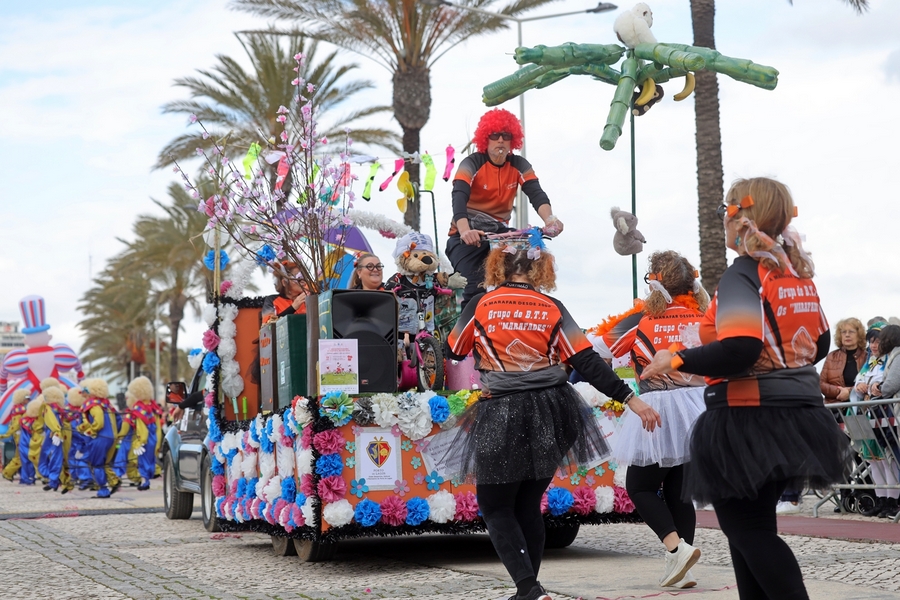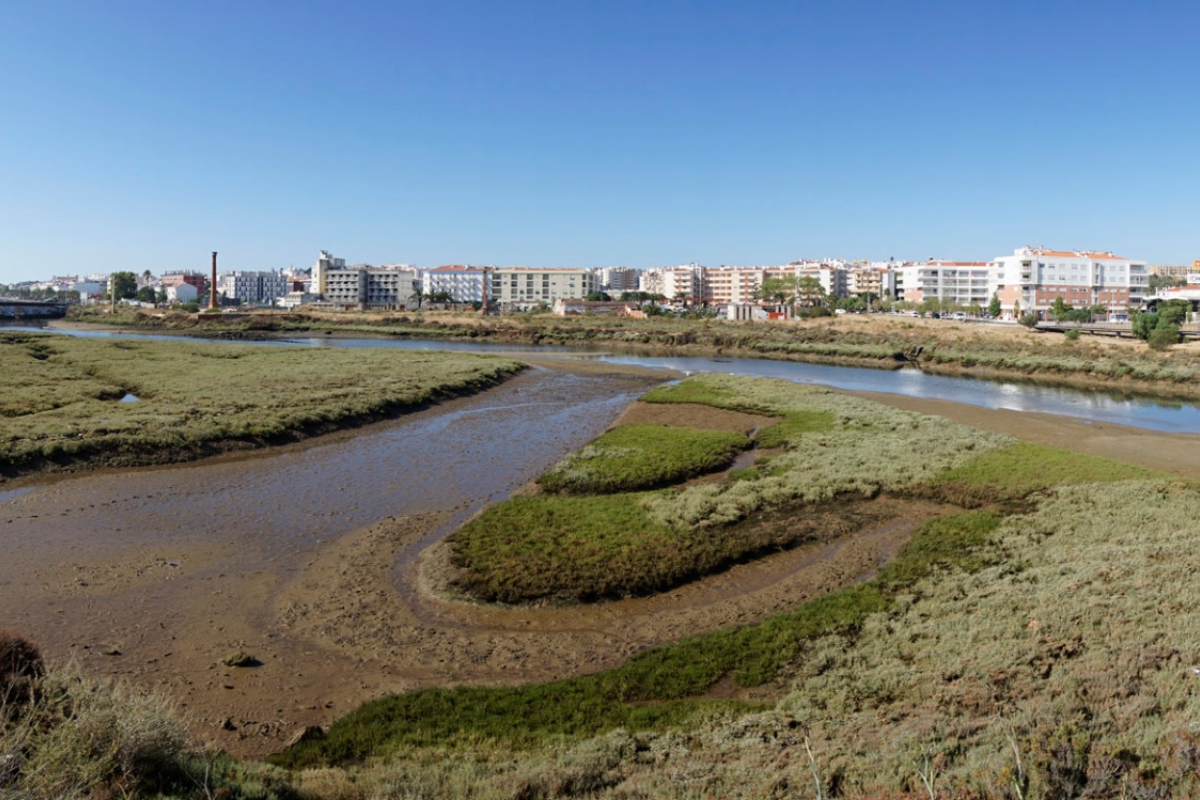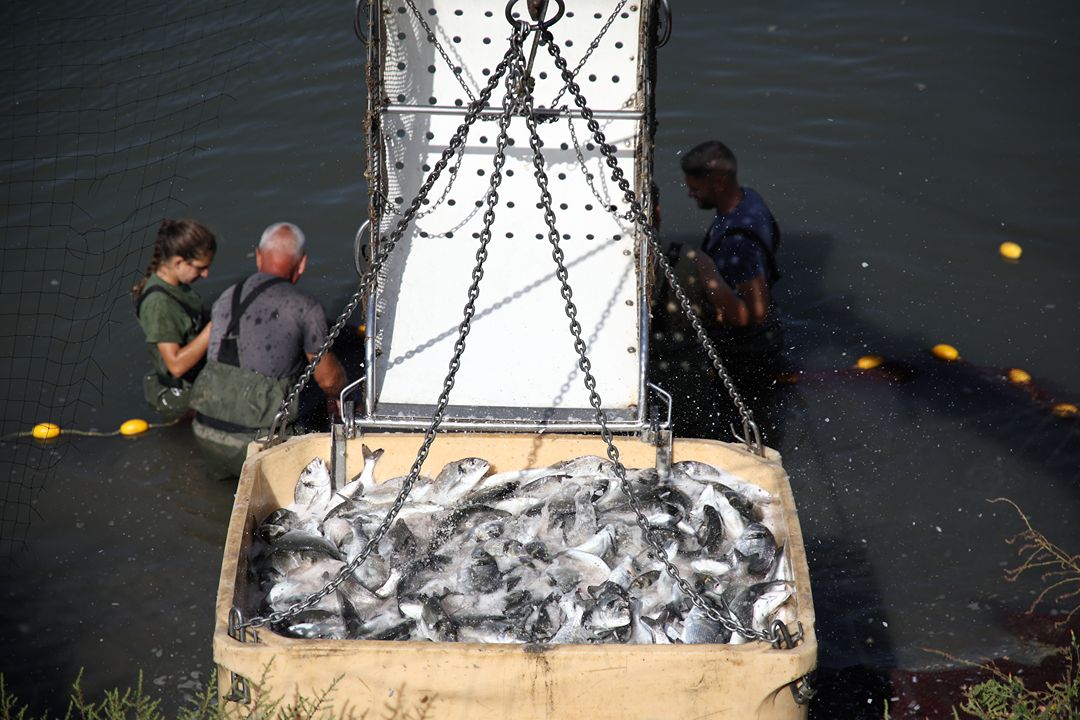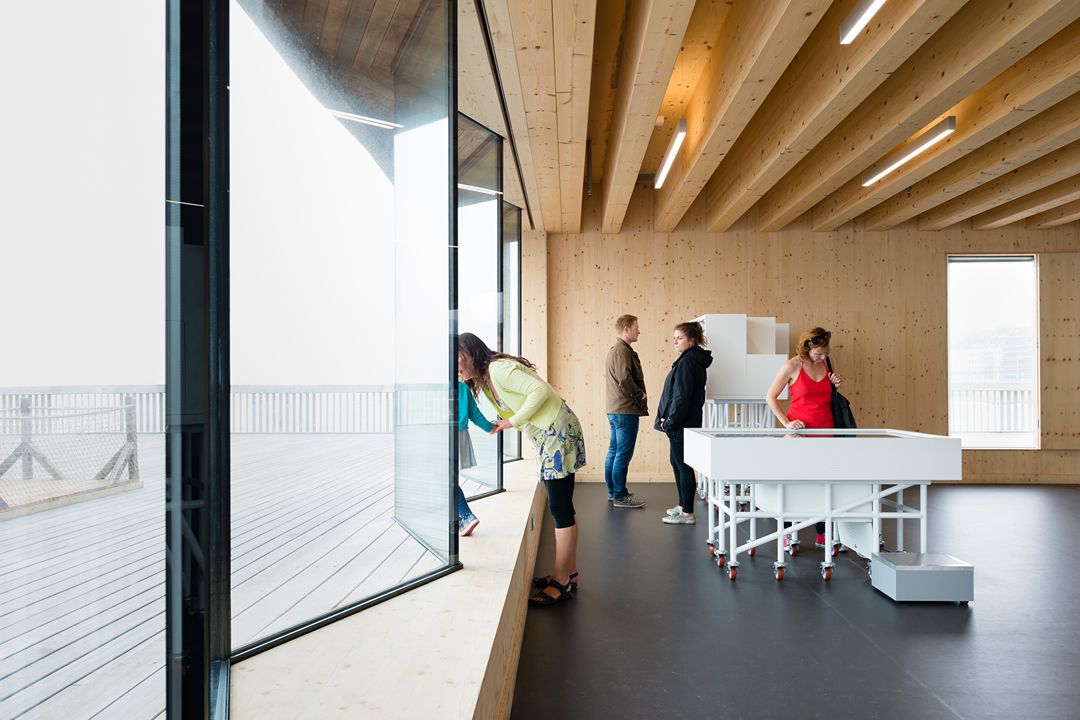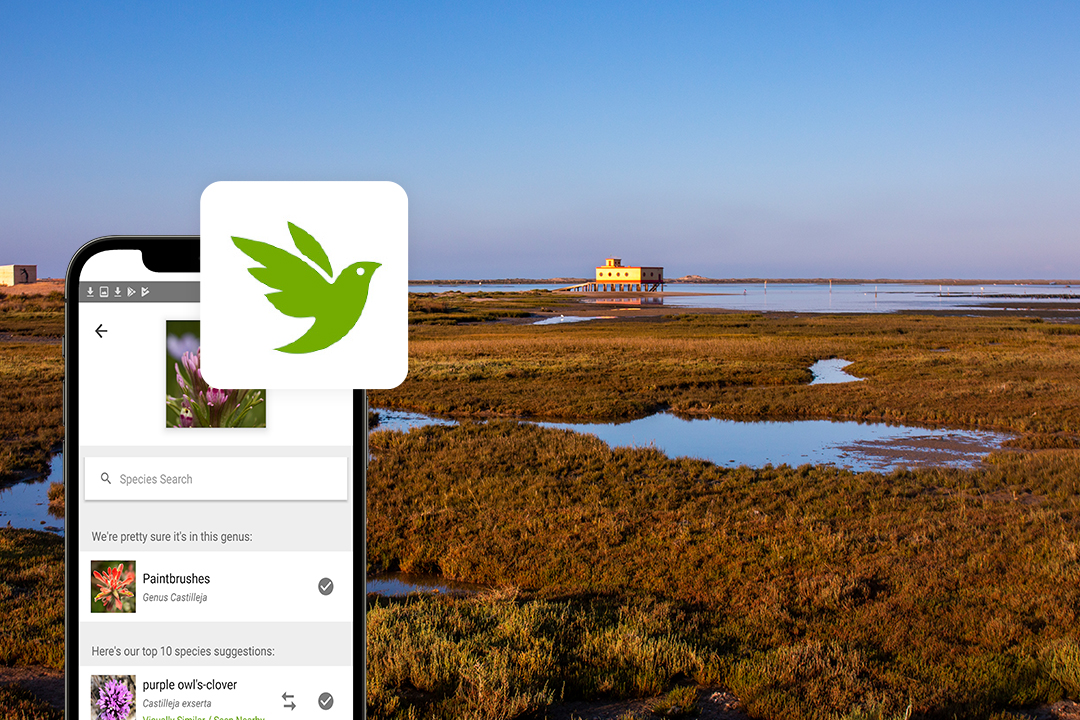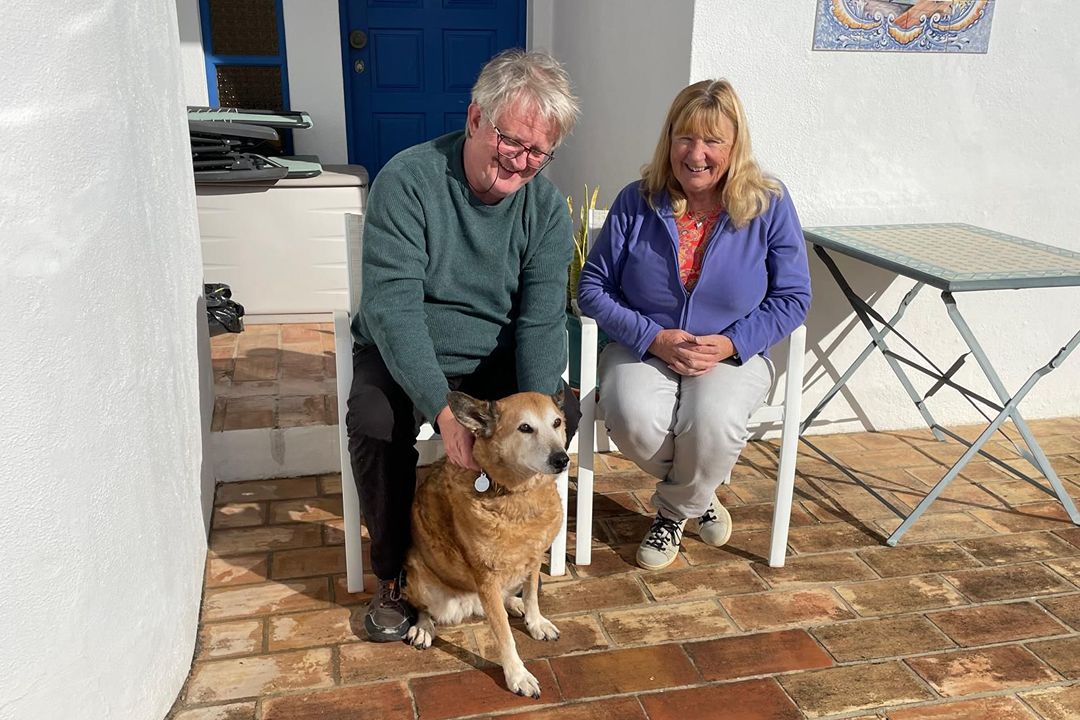The Global March to Gaza was a humanitarian endeavour by thousands of people to negotiate the opening of the Gaza border at Rafah, allowing medical aid and food to pass freely. Palestinians have endured 21 months of constant bombardment. Supplies are blocked, and people are dying of starvation, dehydration and sickness. Karolina Martins, 33, from Armação de Pêra, flew to Cairo to join the march.
“I studied at both Coimbra and Antwerp universities and got my Master’s degree in International Affairs and Diplomacy,” explains Karolina. “It was during this period that I became interested in the conflict between Palestine and Israel, and wrote my thesis on the subject.”
After graduating, Karolina spent six years as a social services coordinator in a refugee centre in Brussels, where she met and helped many Palestinians. She now works for an organisation that places unaccompanied refugee minors into foster care. “I have been closely following the developments in Gaza, a subject dear to my heart. Palestinians are admirable people. When I read about the Global March, I saw an opportunity for me to take action. I felt a moral obligation to join despite already having planned to spend time with my family in Portugal,” she explains.
The Global March organisers’ plan was for protesters to gather in Al-Arish on 13 June before walking an estimated 48 hours through the desert to the Rafah border. The aim was to stage a peaceful three-day sit-in to press for the opening of a humanitarian corridor, allowing aid into Gaza. Karolina stipulates, “The coordinators had asked permission from the Egyptian authorities to proceed with the march. It would’ve been aborted if the officials had denied the request.” A response was never received.
“I flew to Cairo on 12 June. I had heard that authorities were deporting Global Marchers upon their arrival. To avoid suspicion, I didn’t bring my camping gear. I packed as if I were a normal tourist,” recounts Karolina. “Customs questioned me on the details of my trip. I told them that I was there to see the pyramids, and they waved me through. When I arrived at the hotel, the staff also interrogated me, and I began to feel uneasy.”
The next morning, while Karolina was waiting to hear from the march organisers, she noticed police gathering outside in the square. “There were no civilians around, so it felt quite sinister. I walked to a cafe in central Cairo, where there was an even heavier police presence. I had read in our communication group that the police were arresting suspected protestors and deporting them. I had nothing on me to show that I was involved in the march, and I had deleted all communications about the march from my phone, but I started feeling on edge.”
At 11 am, Karolina received instructions to proceed to a meeting point outside Cairo. She shared a taxi with a German couple, but the police stopped them at the second checkpoint. “They confiscated our passports and told us to wait. We watched as more marchers arrived in taxis and experienced the same thing,” Karolina recalls. The police allowed the Egyptians through, but they rounded up all foreigners. By 8 pm there were about 1,500 activists, including one of the organisers, Nelson Mandela’s grandson, Mandla Mandela.
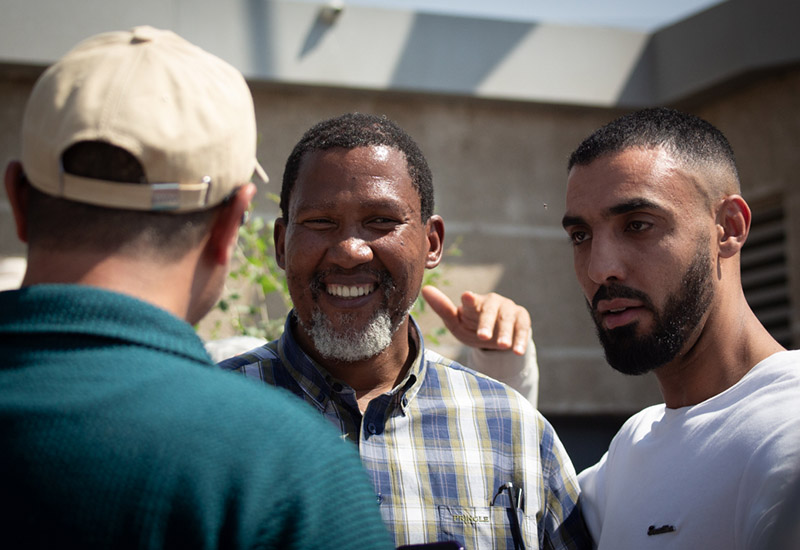
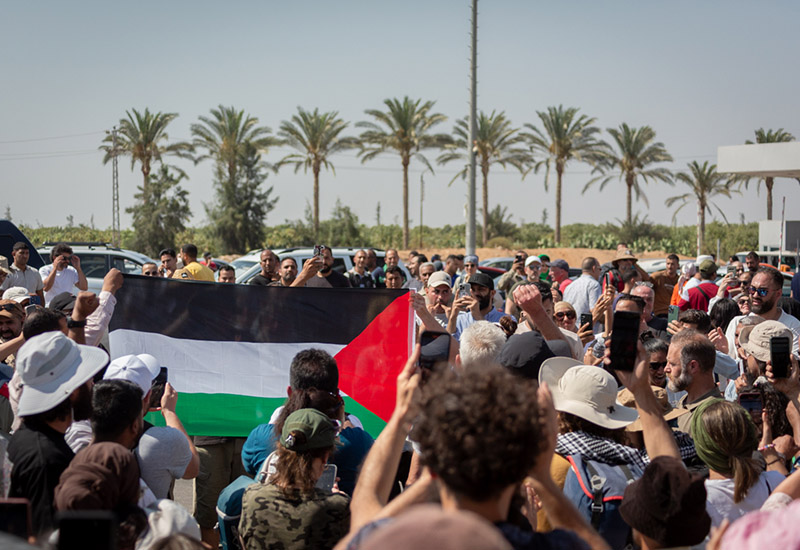
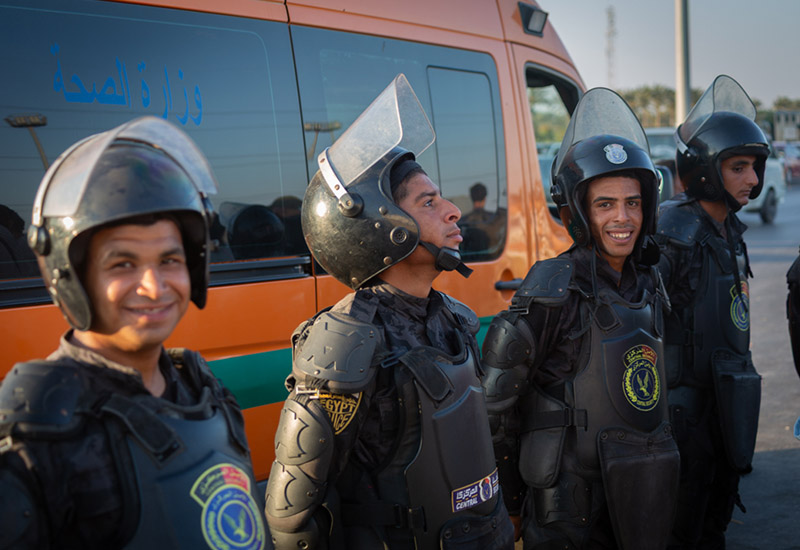
“Agitation and unrest swept through the crowd, and spontaneous chanting began, starting with ‘Give us back our passports’ and moving on to ‘Free Gaza’. Palestinian flags appeared from backpacks. Organisers attempted to obtain permission from the authorities to pass through the checkpoint, but there was no response. Exhaustion and disillusionment were setting in.”
Finally, the police began to haphazardly redistribute the passports, causing anxiety among everyone. Karolina was one of the last to receive hers. The police then directed everyone to a nearby field.
“It became ominous. The police herded us together and circled us in an intimidating way, turning the field lights on and off to frighten us. They then announced that we had 15 minutes to decide whether to get on the buses they had provided to take us back to Cairo. They warned us that those who remained would be facing violence.”
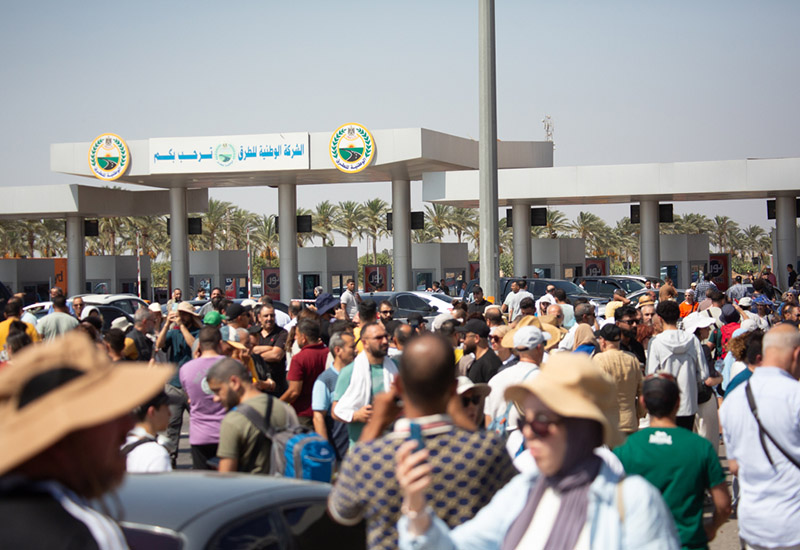
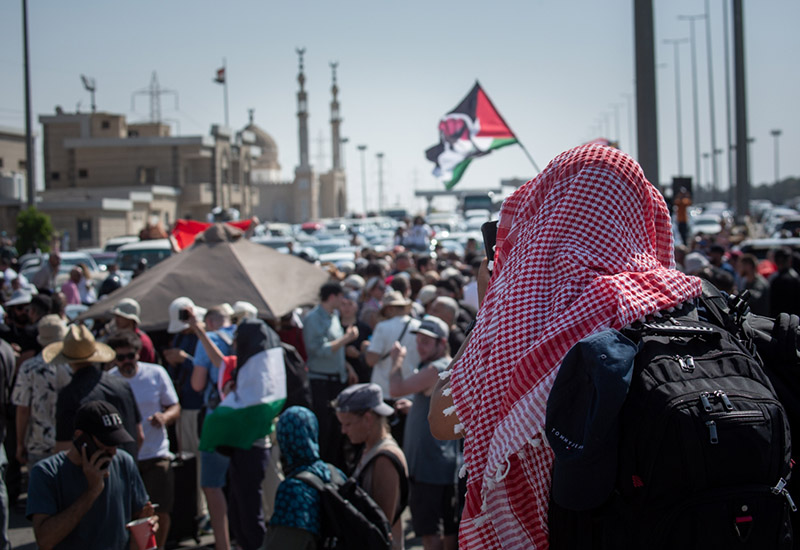
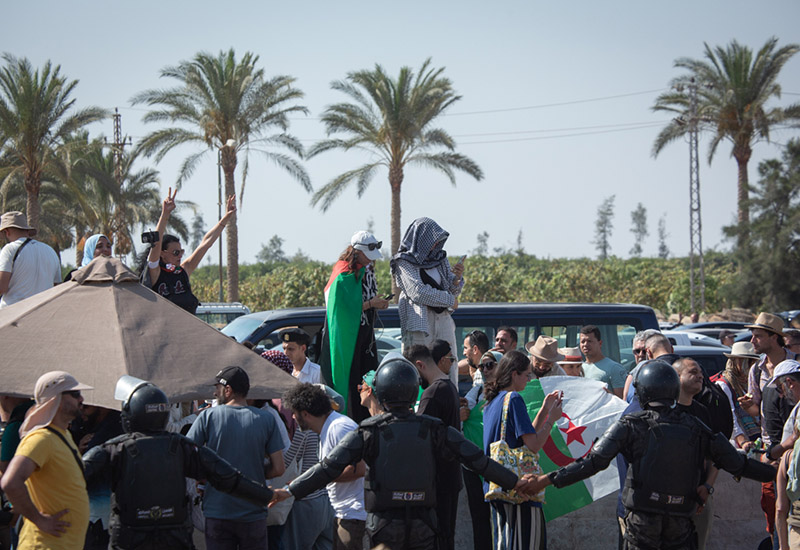
Many of the group chose to leave, but Karolina, with her strong determination and immense courage, stayed. The men gathered around the women to protect them, bracing themselves for what was to come. Several people were filming, and the heavily armed police were reluctant to take action, knowing the footage would be broadcast worldwide. “Suddenly, civilian men appeared and threw bottles at us. They were grabbing and dragging men away from our group to beat them. They didn’t touch the women, so we started shielding the men.”
The Global March to Gaza’s core principles are human dignity, justice and peace. All participants had signed an agreement stating that they would not provoke or use violence. They had also expressed willingness to endure hardship if necessary.
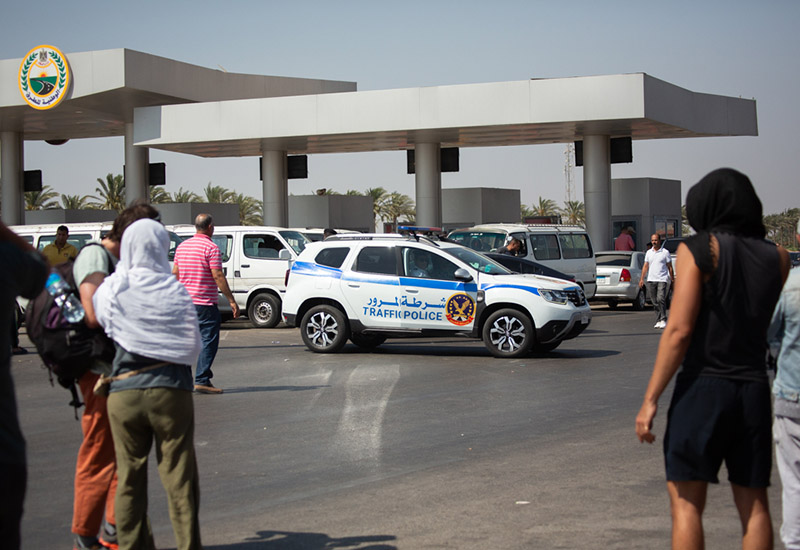
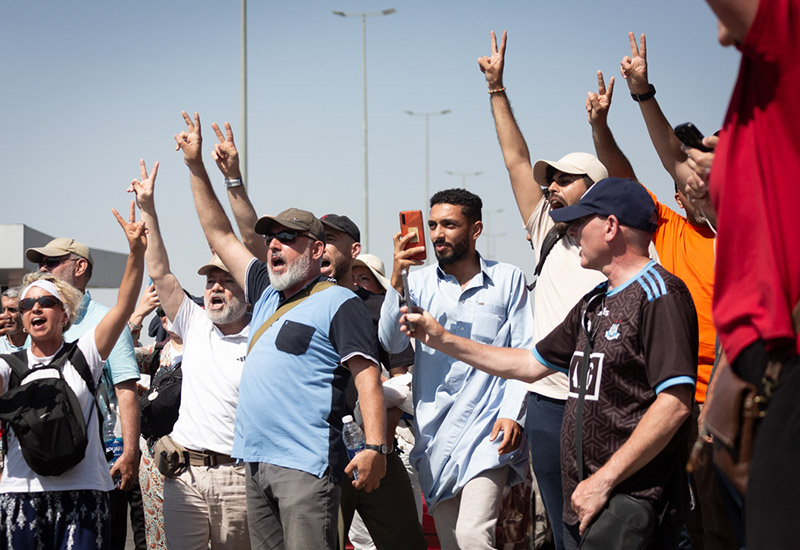
“Our philosophy is not to respond aggressively to aggression, so we could only defend the guys by fiercely holding on to them and pulling them back as they got dragged away. The situation escalated. We tried to reason with the attackers and then began pleading with them, imploring them not to hurt us and explaining that we were here to help the people of Gaza, nothing more.” Many of the marchers departed on the remaining buses.
“There were just a few of us left. We did not want to give up. The threats we were receiving were insignificant compared with the horrors Palestinians endure every day,” Karolina explains. “A spokesperson informed us that the organisers had cancelled the march. He also said that the army was coming and that because we had disobeyed direct orders from the police, they would use violence against us. Seven of us were herded into a small bus, which set off in the direction of Cairo. One of the guys on the bus had been badly beaten up and was very shaken.”
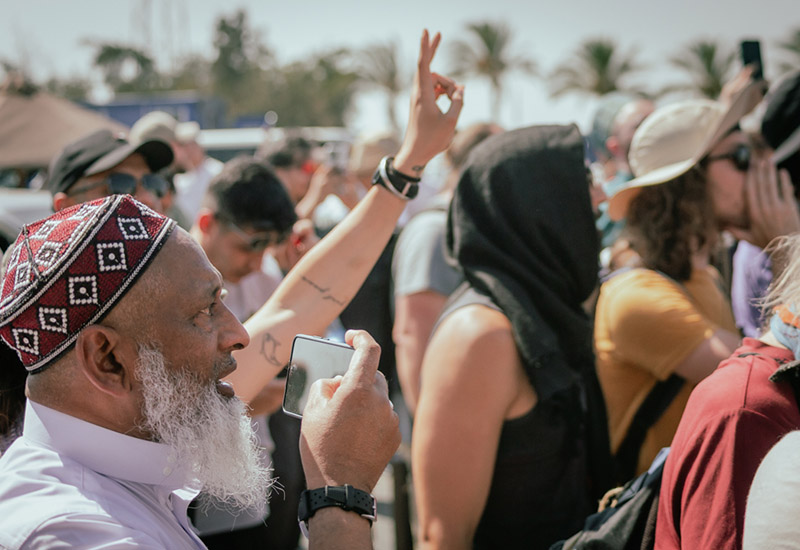
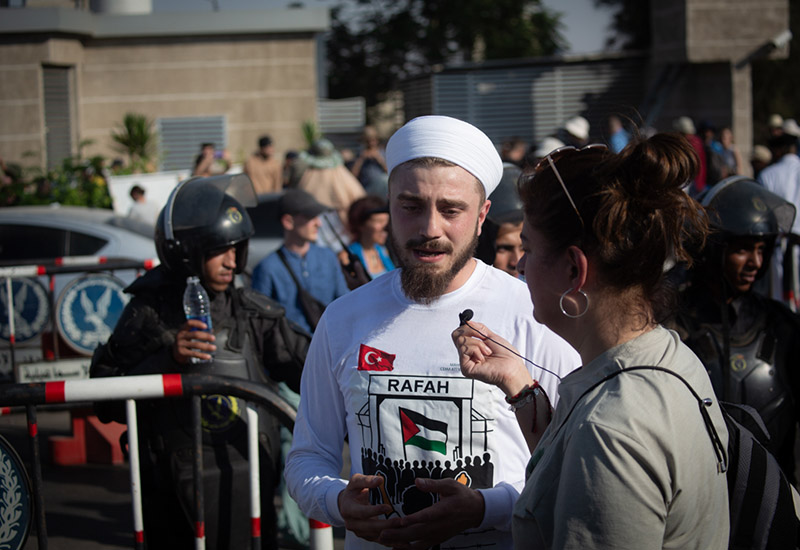
Karolina’s group began to get nervous when they realised that the driver was probably taking them to a police station. Incredibly, they managed to bribe him to drop them off just outside the city, where they took an Uber into Cairo. “The seven of us stayed together, checking into a hotel for the night. We were anxious, though, as the staff were suspicious of us and kept entering our room. We learnt later that the police had ordered all hotel owners to inform them if a suspected protester was staying at their establishment.”
Karolina and her group went to a hotel further from the city centre near the big markets, where they found accommodation that felt much safer.
“The next day, the 16th, we were given the names of global marchers who had disappeared from the streets, cafes and hotels in the previous three days. We were then occupied with phoning embassies to ask them to intervene and negotiate with the police to secure their release.”
The same day, the march organisers advised all remaining protestors in Egypt to book their flights home as the police were raiding hotels and arresting more people. Karolina bought a ticket to Brussels for 19 June.
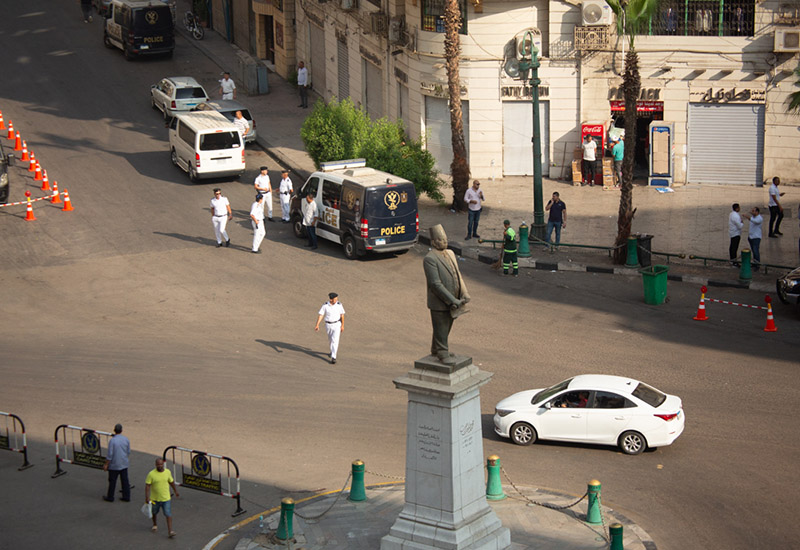
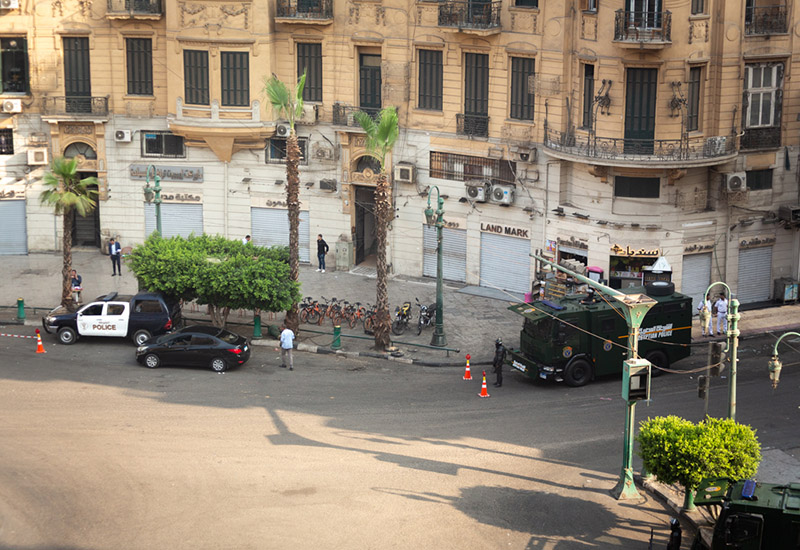
“With only a few days left in Egypt, our group decided to visit some Palestinians who were living there. Most of them were women with young children, and we learnt a bit about how tough their lives are. Rents are high, they don’t have refugee status or protection, and it is illegal for organisations to help them. They rely on the goodwill of others, which is scarce. We provided them with links to a charity that would help, and we gave them money.”
On the 19th, Karolina headed to the airport, and up until the flight took off, she was tense. When she landed in Brussels, she was swept away to be interviewed live on Belgian television. One of the questions asked of her was whether, in hindsight, she thought the march was a naive mission. She answered, “Our initiative has brought more attention to the plight of the people of Gaza. Standing up for human rights and taking action when our governments refuse to is never naive and never futile. The march united world citizens in all their diversity and humanity, bringing them together with the same determination. It gives me hope to see that so many people are willing to jeopardise their safety to strive for a world where human rights are acknowledged.”
During the subsequent week, Karolina became involved in several protests located outside government buildings and in parks in Brussels. “The people of Gaza are crushed. An estimated 84 people a day are killed. Our marches aim to urge our governments to act proportionately to the tragedy. They have the power to stop the atrocity by diplomatic means and economic sanctions.”
Meanwhile, the Global March to Gaza is restructuring and becoming a movement. They now have plans to join forces with the Sumud Convoy and the Freedom Flotilla to send a fleet of boats to Gaza.
Karolina, who demonstrates unwavering altruism, will soon return to her home in Portugal for a while. “I can’t sit and watch the horrors happening, though. I will continue to support the Palestinians and to be a voice for them.” She is in touch with many families in Gaza and informs them of the continuous support they have. She sends them videos of the protests. “Our solidarity gives them hope and a little light in their lives.”
Instagram: globalmovementtogaza

